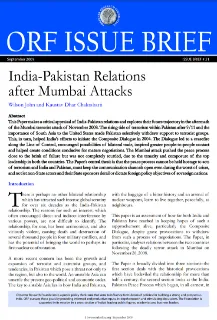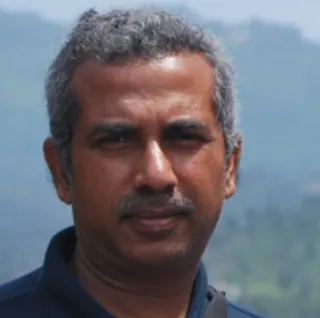There is perhaps no other bilateral relationship Twhich has attracted such intense global scrutiny for over six decades as the India-Pakistan relationship. The reasons for such an interest, which often encouraged direct and indirect interference by various powers, are not difficult to identify. The relationship, for one, has been acrimonious, and also viciously violent, causing death and destruction of several thousand people in four military conflicts, and has the potential of bringing the world to perhaps its first nuclear confrontation.
A more recent concern has been the growth and expansion of terrorist and extremist groups, and tendencies, in Pakistan which pose a threat not only to the region, but also to the world. An unstable Asia can unsettle the present geo-political and economic order.
The key to a stable Asia lies in how India and Pakistan, with the baggage of a bitter history and an arsenal of nuclear weapons, learn to live together, as neighbours. This paper is an assessment of how far both India and Pakistan have reached in keeping hopes of such a rapprochement alive, particularly the Composite Dialogue, despite grave provocations to withdraw from such a process of negotiations.
The Paper, in particular, analyses relations between the two countries following the deadly terror attack in Mumbai on November 26, 2008. The Paper is broadly divided into three sections – the first section deals with the historical provocations which have bedeviled the relationship for more than half a century; the second section looks at the India-Pakistan Peace Process which began, in all earnest, in January 2004 when former Prime Minister Atal Bihari Vajpayee, on a visit to Srinagar, against conventional wisdom and advice of his colleagues and officials, declared a unilateral ceasefire and extended the idea of a peace process. The third part will assess the outcome of the process, and attempt to study the possible trajectory of the dialogue given the changed domestic political and military situation in Pakistan, and the threat of terrorism looming large over post-Mumbai South Asia.
The views expressed above belong to the author(s). ORF research and analyses now available on Telegram! Click here to access our curated content — blogs, longforms and interviews.

 PDF Download
PDF Download



 PREV
PREV



